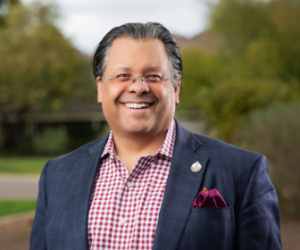Through My Body and in My Heart: A Primer
by Bryan McKinley Jones Brayboy
How do we think about Indigenous Knowledge Systems (IKS)? I want to offer here my own thinking about what IKS are. There will certainly be debate about this. These are my views only; they serve as an invitation to others to share their own ways of outlining these crucial ideas.
IKS are—for me—fundamentally about the intersections between philosophical ideas and the daily realities of tribal nations, communities, and other entities that comprise the peoples who belong to them and their lands and waters. Before I discuss this further, let me be clear about what I am NOT engaging here. These are not sacred or limited knowledges. They are not specific knowledges or sets of knowledges; rather, they are principles and connectors. They are sites of convenings. They are systems. IKS unite Indigenous peoples across the globe. Indigenous peoples are simultaneously tethered to place and migratory. We have always moved. Often the movement was tied to food or water. Sustenance. Or to mates. Another form of sustenance, I suppose. The movement allowed Indigenous peoples to trade ideas, peoples. Stuff. Migration enabled relationships between peoples and ideas. Sparked by connection and curiosity, movement spurred innovation. The movement was a particular life force. Those who fail to adapt and adjust perish. Those who do not innovate, perish. Early Indigenous peoples in what is now Alaska created kayaks for transportation in and through waterways. Kayaks were effective in narrow spaces. And fast ones. Kayaks helped move us. They provided fun. Trips toward sustenance.
We are located in place. In the movement was the return. To our place. Our origins. Place, as I understand it, is not the same as land. Place is land that has been imbued by and with meaning. Many of us introduce ourselves by situating ourselves in our current location and the places that birthed and nurtured us. And our relations. Our kin. We do so not by offering geographical coordinates, but by naming the land that has been given meaning by others. Place grounds us. Literally. And metaphorically. Indigenous peoples and our systems understand that movement and stability and ties to a specific place (or set of places) are not incommensurate. They are necessary.
 Bryan McKinley Jones Brayboy (Lumbee) is president’s professor, senior advisor to the president, and vice president of social advancement at Arizona State University. He is a fellow of the American Educational Research Association and a member of the National Academy of Education.
Bryan McKinley Jones Brayboy (Lumbee) is president’s professor, senior advisor to the president, and vice president of social advancement at Arizona State University. He is a fellow of the American Educational Research Association and a member of the National Academy of Education.